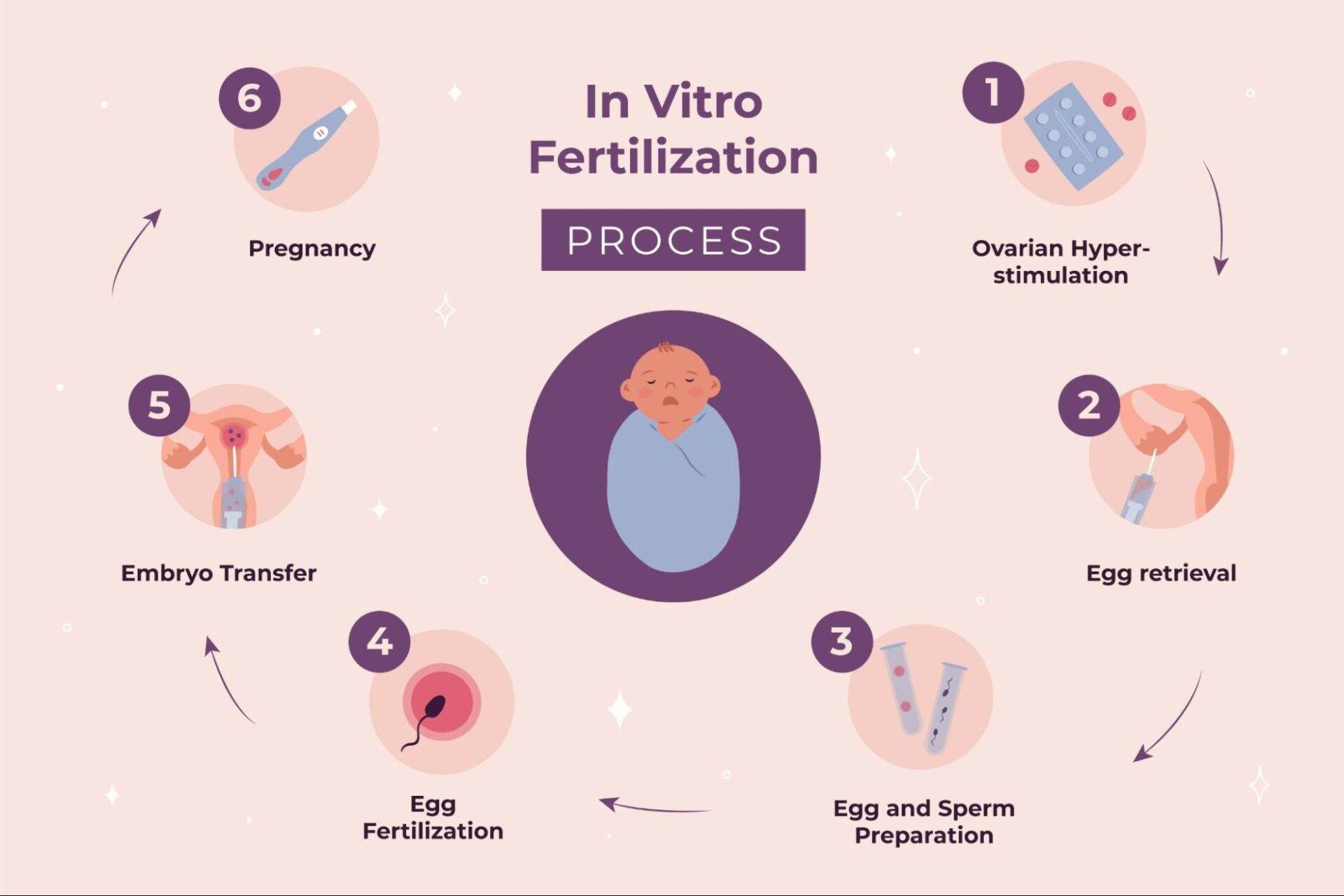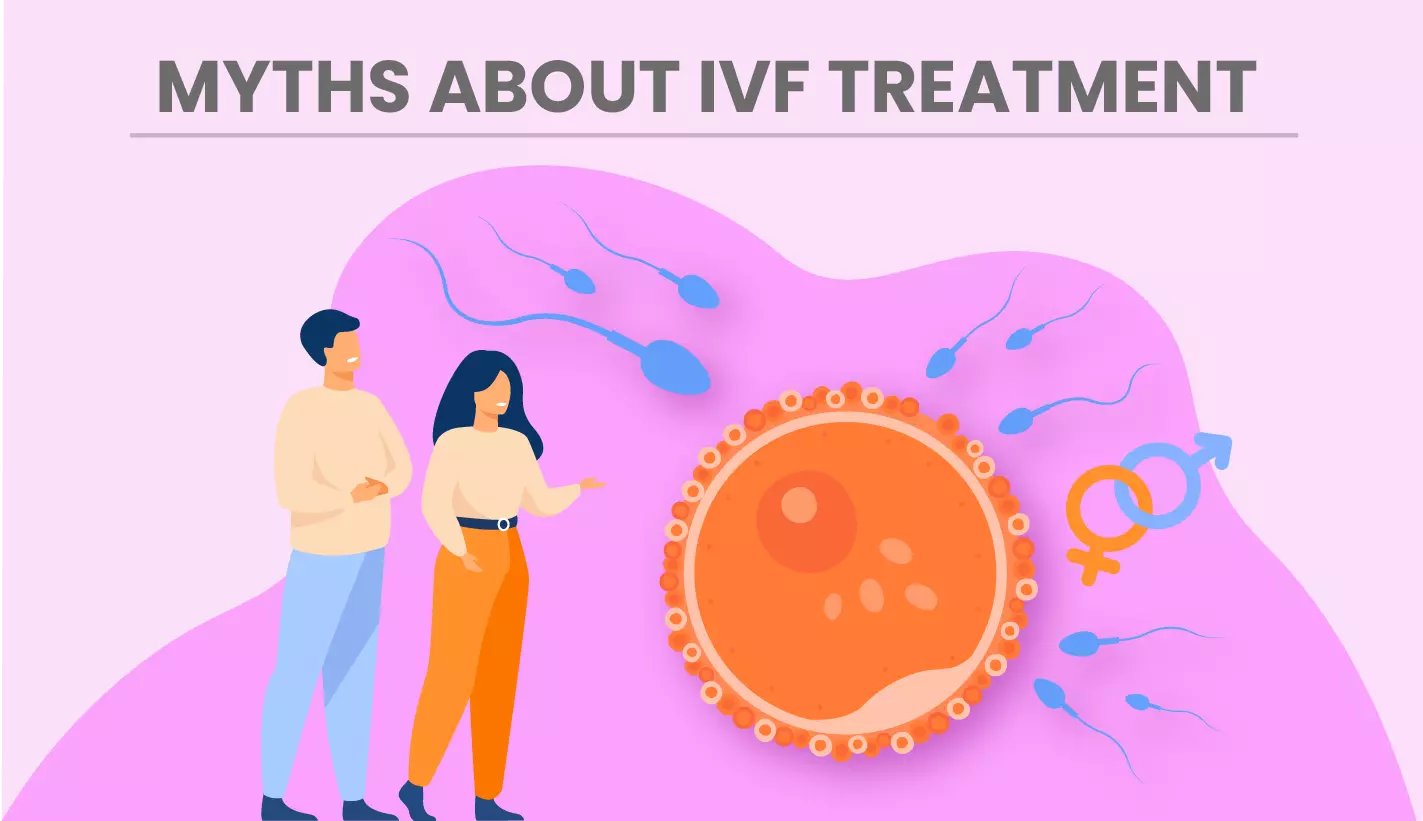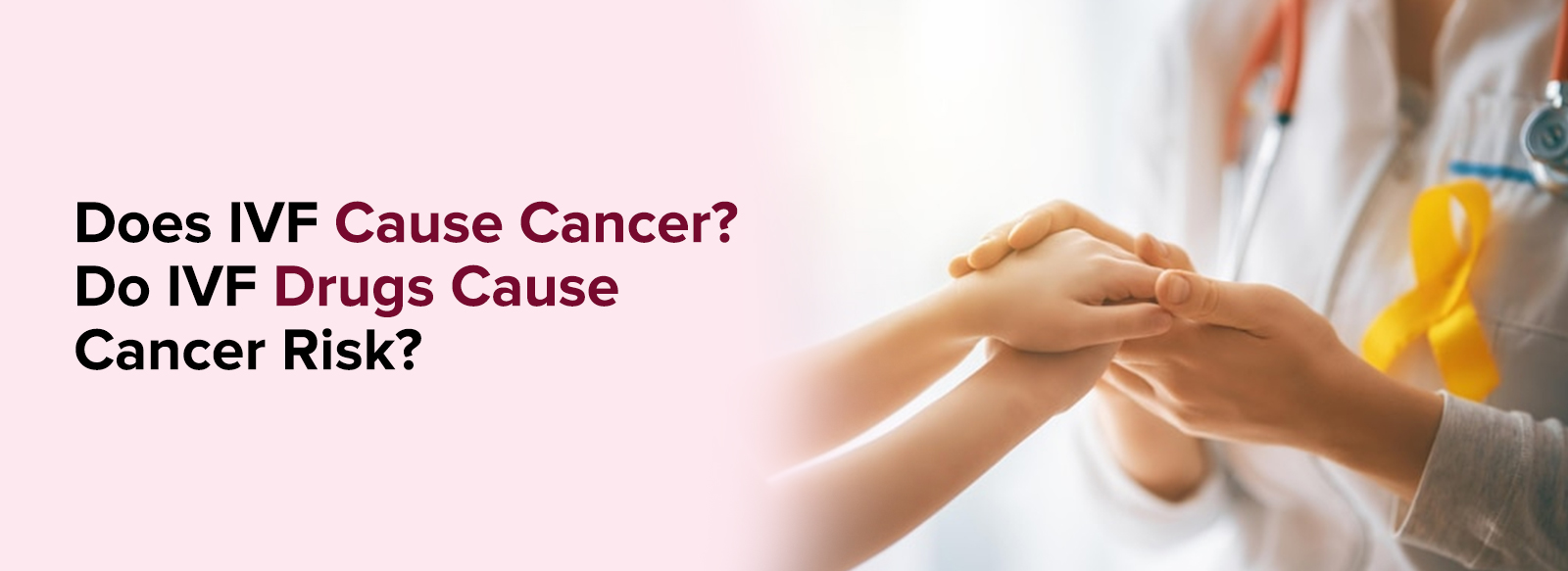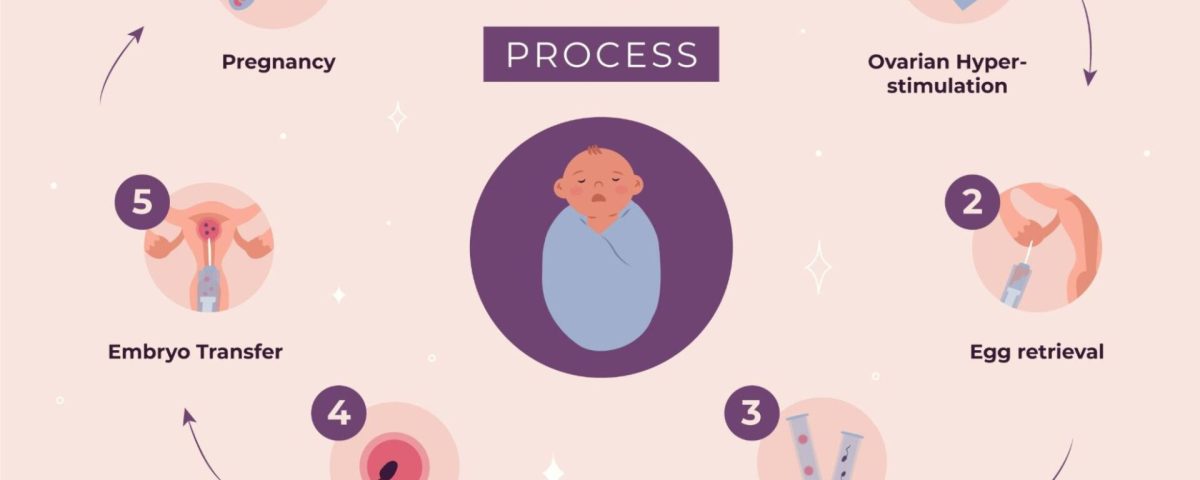
Can You Pick Gender with IVF? The Ultimate Guide to Gender Selection
April 18, 2025
Did Walz Use IVF? Unpacking the Truth Behind Tim Walz’s Fertility Journey
April 18, 2025Does IVF Cause Cancer? Unpacking the Myths, Science, and What You Need to Know
When you hear “IVF,” what comes to mind? For many, it’s the miracle of a tiny embryo turning into a giggling baby, a dream come true for couples struggling to conceive. But lately, whispers have been floating around—online forums, coffee shop chats, even late-night Google searches: Does IVF cause cancer? It’s a heavy question, one that can keep you up at night if you’re considering fertility treatments or know someone who is. Maybe you’ve even stumbled across a scary headline or a friend’s warning about hormones and cancer risks. Don’t worry—you’re not alone in wondering about this.
In this deep dive, we’re peeling back the layers of this topic. We’ll look at what science says, explore the fears people don’t always talk about, and share some surprising facts that might ease your mind—or at least give you a clearer picture. Think of this as your friendly guide, like a chat with a wise friend who’s done the homework for you. We’ll cover everything from how IVF works to the latest research, plus practical tips if you’re weighing your options. Let’s get started!
What Is IVF, Anyway?
Before we dive into the cancer question, let’s break down what in vitro fertilization (IVF) really is. IVF is like a science-powered assist for making babies. Doctors take an egg from a woman’s ovaries, mix it with sperm in a lab (think of it as a high-tech petri dish romance), and then place the resulting embryo back into the uterus to grow. It’s been around since 1978, when the first “test-tube baby,” Louise Brown, was born in England. Since then, over 10 million babies have come into the world this way—pretty incredible, right?
But here’s the catch: IVF isn’t just a quick fix. It involves hormones—lots of them—to help the ovaries produce more eggs than usual. Drugs like Clomiphene citrate and gonadotropins are the stars of the show, boosting egg production and timing everything just right. For some, this hormone part is where the worry creeps in. Could pumping your body with extra estrogen or other hormones spark something dangerous, like cancer? Let’s dig into that next.

The Big Question: Does IVF Cause Cancer?
It’s the elephant in the room: Could IVF, with all those hormones, increase your chances of getting cancer? People tend to zero in on breast cancer, ovarian cancer, and uterine cancer because they’re linked to hormones like estrogen. The fear makes sense—hormones control so much in our bodies, and cancer can feel like a mysterious monster waiting to strike. But what does the evidence say?
Here’s the good news upfront: Most studies suggest IVF doesn’t directly cause cancer. But it’s not a simple yes-or-no answer—there’s nuance, and that’s where things get interesting. Let’s break it down by cancer type, because each one has its own story.
Breast Cancer and IVF: What’s the Connection?
Breast cancer is the one people talk about most when it comes to IVF. Why? Estrogen, a hormone that spikes during IVF, plays a big role in some breast cancers. The idea is that flooding your system with it might wake up cancer cells—or even create new ones. Scary thought, right?
What Science Says
A massive study from the Netherlands, following over 25,000 women for 21 years, found something reassuring. Women who went through IVF had no higher risk of breast cancer compared to those who didn’t use fertility treatments. That’s a big deal—21 years is a long time to watch for trouble. Another study, published in 2016 by the Journal of the American Medical Association, tracked over 250,000 women in the UK. Guess what? No link between IVF and breast cancer either.
But here’s a twist: some researchers noticed a tiny uptick in risk for women who did lots of IVF cycles—like seven or more. It’s not a smoking gun, though—those cases were rare, and other factors (like age or family history) might’ve been at play.
A Real-Life Angle
Picture this: Sarah, a 34-year-old teacher, is on her third IVF round. She loves baking cookies with her nieces and dreams of having her own kids to share that with. She’s heard the cancer rumors and panics every time she feels a twinge in her chest. Studies like the ones above might calm her nerves, but she still wonders: Am I pushing my luck? It’s a personal fear many don’t voice out loud.
Practical Tips
- ✔️ Check your family history. If breast cancer runs in your family, talk to your doctor about extra screening—like mammograms—before starting IVF.
- ❌ Don’t assume every ache is cancer. Hormones can make your body feel weird; it’s usually normal.
- ✔️ Ask your clinic about hormone doses. Lower doses might work for some women and ease worries.
Ovarian Cancer: A Closer Look
Ovarian cancer is trickier. It’s rare, but it’s tied to ovulation—the more you ovulate, the more your ovaries get “worn out,” some experts say. IVF ramps up ovulation, so could that nudge the risk up?
The Research Scoop
A 2018 study from the British Medical Journal followed over 250,000 women who’d done IVF. They found a slight increase in ovarian cancer risk—but here’s the kicker: it was mostly in women who already had fertility issues, not IVF itself. Think of it like this: if your car’s engine is already sputtering, pushing it harder might show the problem, not cause it. Infertility, not IVF, might be the real player here.
Dr. Jane Stewart, a fertility expert, once said, “The data suggests IVF doesn’t create cancer risk out of thin air—it’s more about the underlying health of the women using it.” That’s a relief for many, but it’s not the whole story.
Hidden Worries
Imagine Mia, a 29-year-old artist who sketches dreamy landscapes. She’s single, freezing her eggs via IVF for the future, and loves binge-watching sci-fi shows. She read somewhere that ovarian cancer is a “silent killer” and now second-guesses her choice. She’s not alone—lots of women quietly stress about this.
What You Can Do
- ✔️ Get regular checkups. Ultrasounds during IVF can spot ovary changes early.
- ❌ Don’t skip follow-ups. Even after IVF, keep an eye on your health.
- ✔️ Talk about endometriosis. This condition, linked to infertility, might raise ovarian cancer risk more than IVF does.

Uterine Cancer: Rare but Real?
Uterine (or endometrial) cancer isn’t talked about as much, but it’s hormone-sensitive too. IVF often includes progesterone to prep the uterus, and some wonder if that messes with the balance.
Science Weighs In
A 2020 study from Israel tracked 150,000 women post-IVF and found no clear jump in uterine cancer rates. The risk seems tied more to obesity or never having kids—things infertility patients might face anyway. IVF hormones don’t seem to tip the scales here.
A Personal Take
Think of Lisa, a 38-year-old nurse who loves knitting baby blankets. She’s on her second IVF try and worries about long-term effects. She’s not big on sharing her fears, but they’re there. Studies might reassure her, but she still wants more answers.
Action Steps
- ✔️ Maintain a healthy weight. Extra pounds can boost uterine cancer risk more than IVF.
- ❌ Don’t panic over progesterone. It’s a standard part of IVF and hasn’t shown a cancer link.
- ✔️ Ask about your dose. Tailored plans might lower any tiny risks.
Why the Confusion? Hormones, Myths, and More
So, if the science mostly says “no big risk,” why are we still asking, Does IVF cause cancer? Let’s unpack the culprits behind the confusion.
Hormones: The Double-Edged Sword
IVF floods your body with hormones—estrogen to grow eggs, progesterone to support a pregnancy. Hormones are like the puppet masters of your body, pulling strings you don’t always see. Since some cancers (like breast) thrive on estrogen, it’s easy to imagine a connection. But here’s the thing: IVF hormones are short-term, not a lifelong flood like hormone replacement therapy (HRT), which does have a stronger cancer link.
The Infertility Factor
Here’s a curveball: infertility itself might nudge cancer risk up. Women who don’t ovulate regularly—like those with PCOS—sometimes have higher odds of ovarian or uterine issues. IVF might just be along for the ride, not the driver.
Myths That Stick
Ever heard, “IVF drugs are like pouring gasoline on cancer”? That’s a myth that’s tough to shake. It pops up in chat rooms and family gossip, fueled by fear, not facts. The truth? No study shows IVF drugs directly “ignite” cancer.

Digging Deeper: Lesser-Known Risks and Revelations
Most articles stop at breast, ovarian, and uterine cancer, but there’s more to explore. Let’s shine a light on some corners that don’t get enough attention.
Cancer in IVF Babies: A Hidden Concern?
What about the kids born from IVF? A 2021 study from the New England Journal of Medicine found a slightly higher risk of childhood cancers (like leukemia) in IVF babies—about double the usual rate. But don’t freak out—it’s still super rare, like 1 in 10,000 instead of 1 in 20,000. Researchers think it might tie to infertility genes, not IVF itself.
A Mom’s Perspective
Picture Emily, a 40-year-old mom who loves gardening with her IVF twins. She didn’t know about this stat until a late-night scroll. Now she wonders: Did I roll the dice for them? It’s a quiet worry many parents carry.
What to Know
- ✔️ Screen embryos if possible. Preimplantation genetic testing (PGT) can catch some risks.
- ❌ Don’t assume the worst. The odds are still tiny, and most IVF kids are healthy.
Fertility Drugs and Other Cancers
What about less-talked-about cancers, like thyroid or skin? A 2019 Danish study hinted at a slight thyroid cancer bump in IVF users, but it’s not confirmed. Skin cancer? No solid link yet. These are breadcrumbs, not headlines—worth watching, but not panicking over.
IVF for Cancer Patients: A Twist in the Tale
Here’s something cool: IVF isn’t just for infertility. Cancer patients—like young women facing chemo—use it to freeze eggs or embryos before treatment zaps their fertility. Dr. Karen Phillips, an oncologist, shared, “For these women, IVF is a lifeline, not a risk factor.” Studies show no cancer surge from this use, even with hormone boosts.
A Survivor’s Story
Think of Ava, a 32-year-old cancer survivor who loves salsa dancing. She froze her eggs pre-chemo and dreams of a family. IVF gave her hope, not fear—proof it’s not always the villain.
How to Protect Yourself: Practical Advice
Worried about IVF and cancer? You don’t have to just cross your fingers. Here’s a game plan to feel more in control.
Before You Start IVF
- Talk Family History: Got cancer in your genes? Tell your doctor—they might tweak your plan.
- Baseline Checks: Get a mammogram or ultrasound to know where you stand.
- Ask Questions: How many cycles? What hormone doses? Knowledge is power.
During IVF
- ✔️ Watch Your Body: Bloated or tired? Normal. Sharp pain? Call your doc.
- ❌ Don’t Overdo Cycles: Some say more than 6-7 might up risks—discuss limits.
- ✔️ Stay Healthy: Eat well, sleep, and skip the stress snacks.
After IVF
- ✔️ Keep Screening: Annual checkups catch stuff early.
- ❌ Don’t Ignore Symptoms: Weird bleeding or lumps? Get it checked, pronto.
A Handy Table
| Stage | Do This | Skip This |
|---|---|---|
| Before IVF | Family history chat | Assuming it’s all fine |
| During IVF | Monitor how you feel | Ignoring red flags |
| After IVF | Regular doctor visits | Brushing off odd symptoms |
What’s New in 2025? Fresh Research Insights
Since it’s March 24, 2025, let’s peek at the latest. A 2024 study from Sweden (hot off the press!) tracked 300,000 IVF women and found no cancer spike after 15 years—super reassuring. Plus, new tech like “minimal stimulation IVF” uses fewer hormones, cutting worries even more. Dr. Michael Lee, a fertility pioneer, noted, “We’re refining IVF to be safer every year.” That’s progress you can feel good about!
Busting Myths With Facts
Let’s tackle some rumors head-on:
- Myth: IVF hormones guarantee cancer.
Fact: Nope—short-term use doesn’t match long-term HRT risks. - Myth: Only old women get cancer from IVF.
Fact: Age matters, but IVF’s cancer link isn’t age-specific. - Myth: IVF kids are cancer magnets.
Fact: Risk is tiny, and likely not from IVF itself.
Your Next Steps: Feeling Confident About IVF
So, does IVF cause cancer? The big picture says no—not directly. It’s more about your starting point (infertility, genes) than the treatment itself. If you’re on the IVF fence, here’s how to move forward:
- Chat with Your Doc: Get a personalized risk rundown.
- Weigh the Pros and Cons: Baby dreams vs. small risks—your call.
- Stay Informed: New studies pop up—keep an eye out.
Let’s Talk: What Do You Think?
This is a lot to take in, right? Maybe you’re feeling relieved—or still curious. Drop your thoughts below! Have you or a loved one done IVF? What worries you most? Or maybe you’ve got a question I didn’t cover—let’s chat about it. Your story could help someone else, too!
